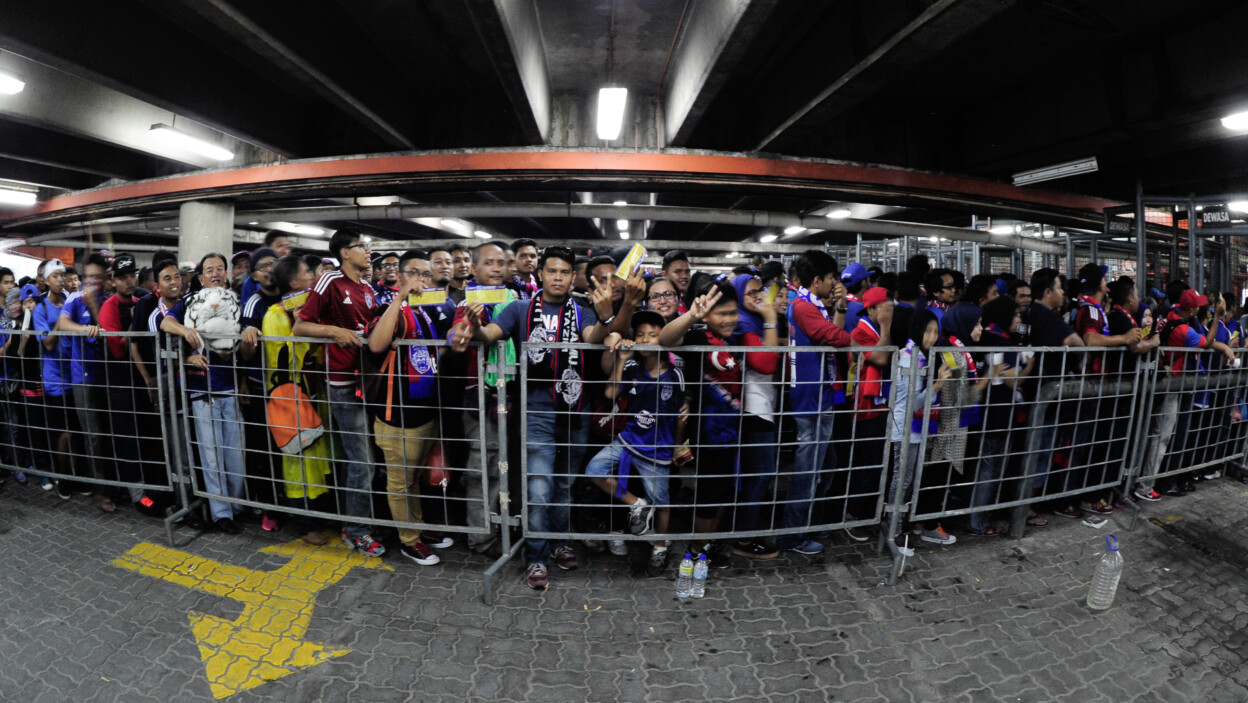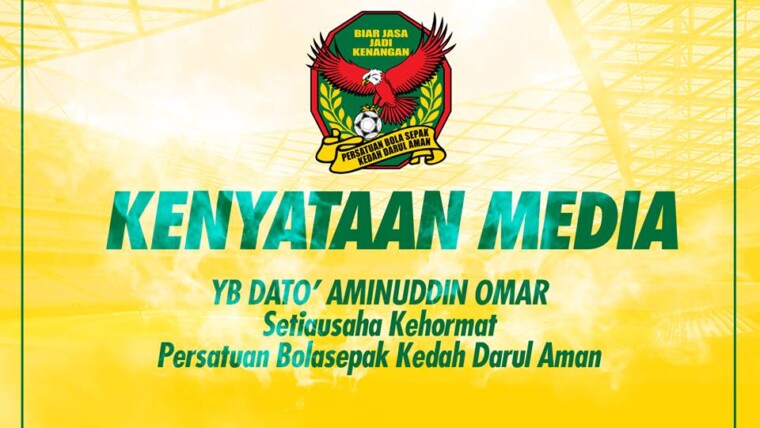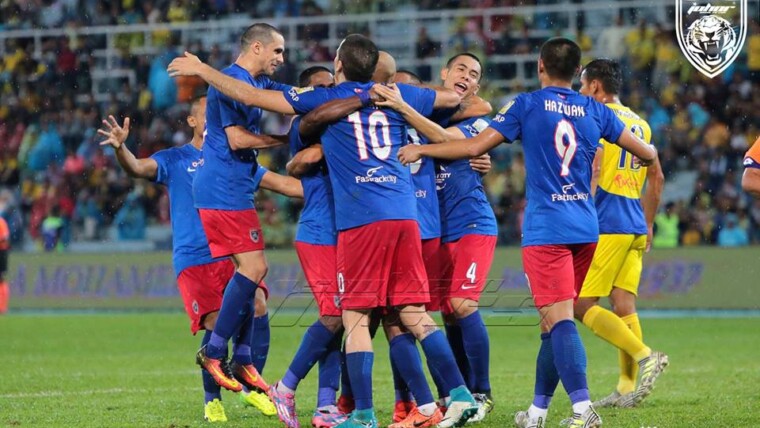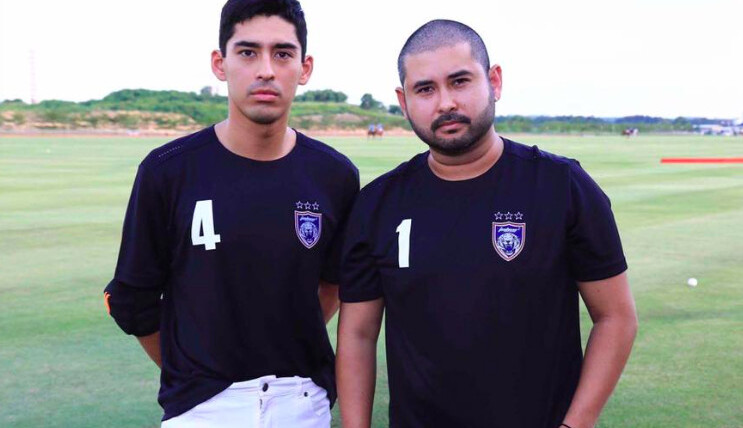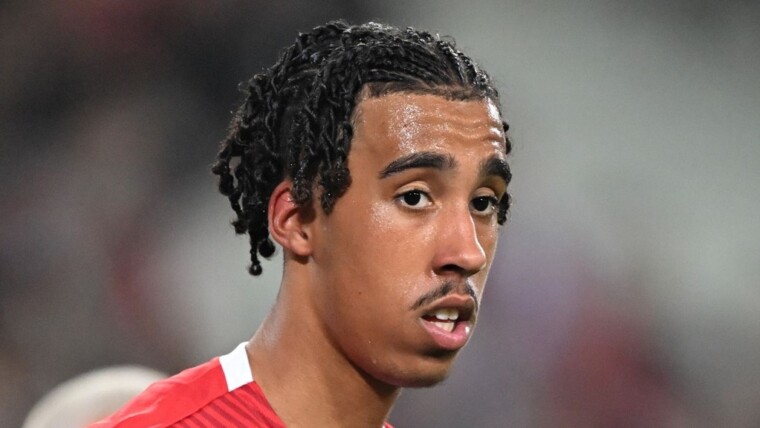INTRODUCTION
I was challenged by a colleague to write a positive critique of Malaysia’s elimination from the AFF Suzuki Cup at the group stage in Myanmar. With my chosen method being a journal-like review of the last two years, this turned out to be a difficult and depressing article to write.
Malaysia’s 1-0 defeat to Myanmar, and the subsequent failure to progress beyond the group stages brings to an end a fraught two-year period that may go down as the moment when a tipping point was reached for Malaysian football.
Phase One – All Looks Fine – December 2014 to January 2015
A) Malaysia were minutes away from Suzuki Cup glory
Malaysian football is seemingly not as bad as the naysayers would tell you. In spite of a furore surrounding the physical attack on Vietnamese fans in the semi final first leg defeat at Bukit Jalil, the National team managed to turn round a 2-1 deficit to beat much fancied Vietnam, and then finish runner-up in the AFF Suzuki Cup after fully extending a much-admired Thailand team. Indeed, Dollah Salleh’s team of gnarly veterans were just 8 minutes away from a fabulous comeback win after turning round a 2-0 first leg reverse to lead 3-0 with 82 minutes on the clock at Bukit Jalil. Two late goals were conceded, though, and in what may be seen as a portent of things to come, Dollah spoke of “lack of fitness” as a key contributor to the 4-3 aggregate defeat. But the efforts of a team inspired by Competition-leading scorer Safiq Rahim and including 30+ players like Indra Putra, Shukor Adan, Afif Amiruddin, Amri Yahyah, S Kunanlan and Safi Salee were able to push the mighty Thai’s mighty close.
B) Malaysia Super League & Malaysia Cup enjoy classic matches
Concurrently, the Malaysia Super League seemed in rude health with the emerging Johor Darul Takzim forcing Selangor, Pahang and Terengganu to raise their game. The sight of these four big states filling the top four berths in the final league table pointed to a League ready to springboard to something bigger and better. As did the epic Malaysia Cup final between Johor and Pahang that had taken place just two short months earlier.
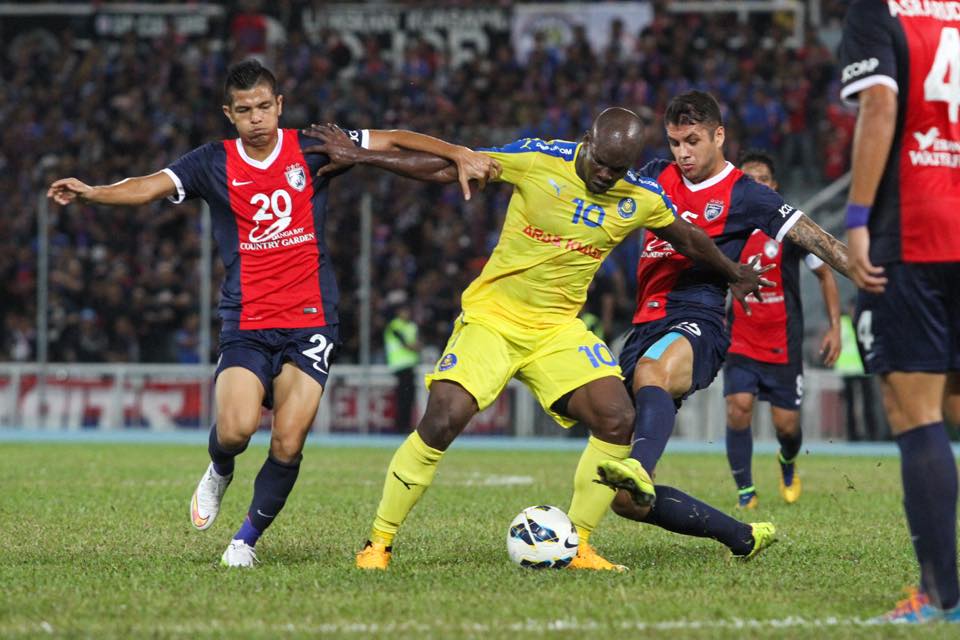
C) MP & Silva’s Huge TV Rights Agreement
Indeed, such was the optimism surrounding the domestic game, that a huge bid for the rights to market and televise local football was received from an unexpected source. MP and Silva – an International sports agency – agreed a RM 1.15 billion, 15-year deal. It was a bonanza for the League. Some thought it overpriced, and were surprised by the emergence of the winning bidder. But the FAM, we assume, did their due diligence on the bid-winning organisation. What could possibly go wrong?
Phase Two – Question Marks Emerge – February 2015 to May 2015
A) Oman 6-0 Malaysia
Dollah Salleh was unofficially “asked” to bring down the average age of his National team. No Shukor Adan or Indra Putra Mahyuddin’s were to be allowed in future squads. “Youth” was the way forward. Cue a 6-0 mauling at the hands of Oman in March 2016. A debut in goal (as sub) for Khairul Azhan, debuts for Akram Mahinan and Che Rashid Che Halim, plus the concession of 2 penalties and a red-card for Safiq prompted calls of “back to the drawing board” for Dollah. Clearly lacking a defensive leader in Shukor’s absence, Malaysia were grimly outplayed and Dollah’s Coaching ability questioned.
B) Under 23’s miss out on AFC U-23 qualification
So what of the next generation? In March, Malaysia hosted a Qualifying Group for the AFC under-23 Championships in Qatar. Japan, Vietnam and Macau were the opposition but the best of the next generation of Malaysian footballers were unable to advance. Gutsy performances against both Vietnam and Japan ended in narrow defeat, and whilst Macau were beaten 2-0, Malaysia were eliminated. Those expecting a glut of players from the under-23’s good enough to offer a realistic challenge for a senior shirt in the near future would have to temper their optimism.
C) Close domestic league season
More positively, the domestic Super League had started with Johor Darul Takzim (JDT) – despite their spending – being kept in check by Selangor, Pahang, Terengganu and newly promoted Felda United. The league looked more competitive than ever.
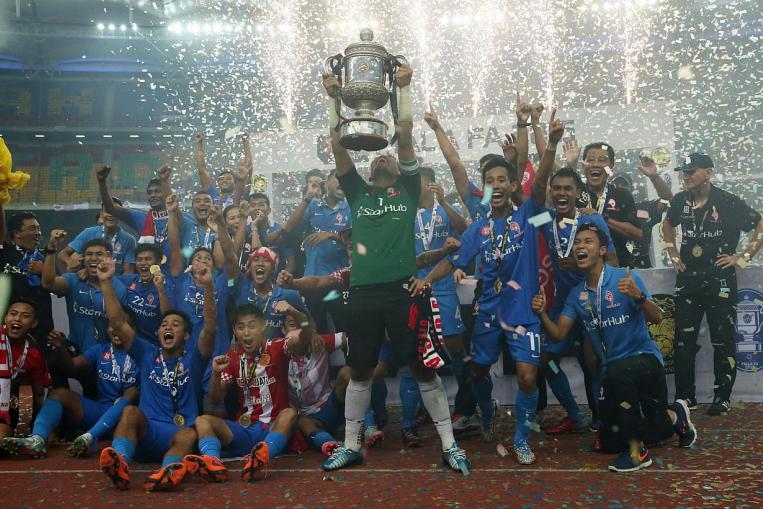
D) FA Cup goes out of Malaysia
But, worryingly, the FA Cup went out of the country for the first time as the Lions XII – Singapore’s import-free invitees to Malaysian football – beat Kelantan 3-1 at Bukit Jalil. Late goals were again the undoing for a Malaysian side against foreign opposition. It was a chastening moment for Malaysia’s state teams.
E) Television Coverage
And that TV deal? Audience figures for games shown on free-to-air TV continued to be huge. But MP & Silva hadn’t been able to secure a committed broadcast partner to properly showcase the League, which was subsequently left with limited live coverage. With far fewer live games than promised, whilst hugely watched when on there was far less day-to-day buzz about the league, much less discussion and analysis and a perception of a lessening of interest. There was also less money than promised for the participating teams.
Phase Three – Dark Days – June 2015 to September 2015
A) SEA Games flop
In early June, the under-23 team under Datuk Ong Kim Swee failed to get out of their group at the 2015 SEA Games in Singapore. A nervy opening day win over East Timor was followed by a 5-1 mauling at the hands of the vibrant Vietnamese, and a 1-0 loss to the talented Thais. Malaysia were eliminated before the Opening Ceremony of the event.
B) Senior Team: Malaysia 0-6 Palestine
The Senior National team opened their FIFA World Cup/AFC Cup campaign with two home matches against East Timor and Palestine. The history books suggested they should be winnable. They weren’t. A late East Timorese equaliser dashed hopes of getting the campaign off to a winning start, before Palestine – a team with just one win in the previous 18 months – demolished Malaysia 6-0. But that said, the situation was about to get a whole lot worse.
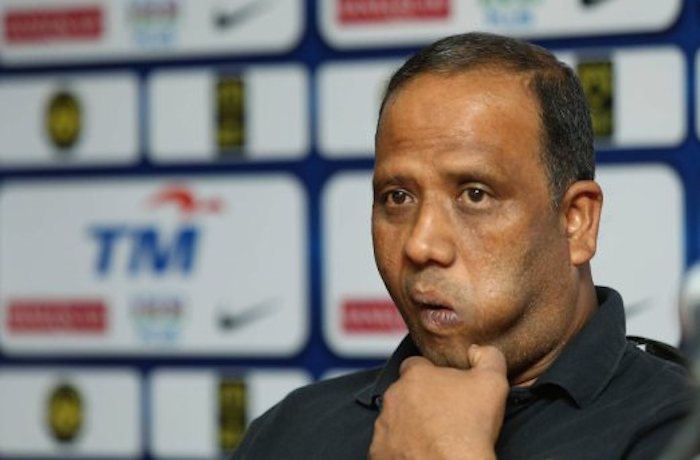
C) Senior Team: UAE 10-0 Malaysia
September 3rd 2015: Malaysia’s darkest footballing day. The senior team suffered its worst EVER defeat as Omar Abdulrahman and his UAE team dismantled Dollah’s new-look squad. Three goalkeepers were used in the embarrassment, whilst the real face of Malaysia’s footballing stock was that Junior Eldstal – a player recruited from the 7th (seventh) level of English football – was an upgrade on the midfield talent available in Malaysia. This was no slight on Junior, but on the dearth of talent coming through from Junior level as highlighted by the SEA Games debacle. Dollah Salleh resigned after the match.
D) Tight finish in Super League
In the domestic League, Johor Darul Takzim secured back-to-back league titles on the last day of a competitive season. Pahang finished a close second, but amidst fevered speculation that their funding for the following season was to be slashed. Selangor would finish third whilst Penang were promoted from the Premier League.
Phase Four – Poison – September 2015 to December 2015
A) Ultras demonstrate
Datuk Ong Kim Swee was elevated into temporary control of the national team and took charge for the first time in a match against Saudi Arabia. This was the day that the fed-up Ultras (Malaysia’s hard-core, vocal fan group) demonstrated against the FAM, and Kim Swee and his team were on the inadvertent receiving end of dangerous fireworks that flew close to the Malaysia team dugout. A gutsy 2-1 defeat became a later 3-0 loss after disciplinary proceedings.
B) Palestine 6-0 Malaysia
Victories over Laos (a friendly) and East Timor (World Cup qualifier) calmed things on the international front, only for another 6-0 embarrassment at the hands of Palestine to rather blight Kim Swee’s time in temporary charge. In the circumstances, another loss (1-2) against the UAE was seen as something of a moral triumph. But it was at this time that the first real public dissatisfaction were heard from Tunku Ismail of Johor (TMJ) against the ruling authorities of Malaysian football.
C) Political football
Domestically, in the Malaysia Cup, the deep politicisation in the game was emphasized with as much interest in off-field activities as on-field performances. Football’s worst kept secret from September onwards was that Pahang’s Zainal Abidin Hassan was to replace Mehmet Durakovic as Coach at Shah Alam with Selangor’s internal politicking becoming a major discussion point. Durakovic’ Selangor beat Zainal’s Pahang in the semi finals of the Malaysia Cup, before beating Kedah to claim the State team’s 33rd title. It was a pyrrhic victory. Mehmet was still replaced by Zainal!

D) JDT win AFC Cup
Like a glowing beacon in the dark, there was one eye-wateringly high point for the domestic game on 31st October. Johor Darul Takzim won the AFC Cup. JDT had some fortune en route when their semi final opponents Al Qadsiya from Kuwait were, like all Kuwaiti teams, banned by FIFA. But none-the-less, Leandro Velasquez’ famous early goal in Dushanbe, and a backs-to-the-wall defensive performance of almost heroic proportions enabled JDT to become the first Malaysian team to win an AFC sanctioned competition. While all else was disintegrating, JDT were investing off the field, performing on it, and all-the-while providing TMJ with solid ammunition to aim at the FAM. 2015 ended with uncertainty surrounding the funding of Pahang, the National team under constant fire with a FIFA ranking of 171, and JDT wearing Malaysia’s first continental football crown.
Phase Five – Rumbling Discontent – January 2016 to June 2016
A) JDT dominate domestic game
The domestic season in 2016 belonged to Johor. The Southern Tigers swept all before them in front of sizeable crowds en route to an FA Cup triumph over PKNS Selangor, a place in the last-16 of the AFC Cup, and an unbeaten first half of the League season. Elsewhere, Penang’s Faiz Subri’s wonder goal against Pahang suggested to the outside world that all was hunky-dory in Malaysia’s domestic scene. Wan Zack Heikel sizzled with a world-class assist as Kelantan threatened to play pretty football in their new pink stadium, and Felda United were nearly untouchable at the wonderful made-for-football Jengka Stadium.
B) Troubled environment
But trouble was brewing. Selangor’s Zainal Abidin Hassan was swept from office within 6-months as he and his Pahang recruits struggled to make an impact in League, FA Cup or AFC Cup; Pahang fans realised that their asset-stripped team was going nowhere, and rebelled forcing the resignation of the recently installed CEO; Terengganu’s impossible-to-understand lack-of-success reared its head again as they went through back-room traumas and Coaches with abandon; Kelantan’s new sponsorship proved to be more meddlesome than feared; Resting of Coaches became the new rage. Jacksen Tiago, K Devan, Ahmad Yusof & Mike Mulvey, Shaharudin Rosdi were all ousted. Only at Felda, Johor, Terengganu’s T-Team and – lower down – Melaka could contented faces be seen in the mad, mad world of Malaysian football.
C) New coaches for national teams
On the national stage, great stock is put on winning the 2017 SEA Games under-23 football tournament in Kuala Lumpur, and so Malaysia went abroad to recruit German-born Frank Bernhardt to lead that charge. The appointment was soon mired in confusion when Bernhardt learned that the team and the players he thought he was going to mould in a competitive league didn’t exist. And neither did the place in the league. The Harimau Muda project – rightly or wrongly – had been shelved – but no one told Frank. Oh, and he couldn’t choose his own coaching team either! But the KPI remains gold next year. The selection of a National Team Coach became a drawn out affair. Datuk Ong Kim Swee was eventually given the honour of becoming permanent Coach. But whether a correct or incorrect decision, the wait to appoint him smacked of “we couldn’t find anyone better, so here you go”.
D) Tunku Makhota of Johor’s challenge for Malaysian football
There was by early 2016 a constant critical analysis of the working of the Football Association of Malaysia (FAM) from TMJ. Protected in some degree by respect for his Royal Status, but backed with a solid plan, a working example of how a plan can work, and ever-growing evidence of the problems inhibiting the Malaysian domestic game, TMJ’s desire to change the people in control of Malaysian football, and to “kill” the “failed regime” was cranked up a notch with the famous “pen-drive” the subject of many headlines, and much debate. With such a muddied backdrop, a goalless draw for the national team against Macau in Melaka didn’t help Kim Swee’s cause. Even those of us who sympathised with him being stuck in the middle of an internecine war between TMJ and FAM knew he needed good results. Another goalless draw in Yangon against AFF Suzuki Cup opponents Myanmar was creditable, and prompted a truce. Of sorts.
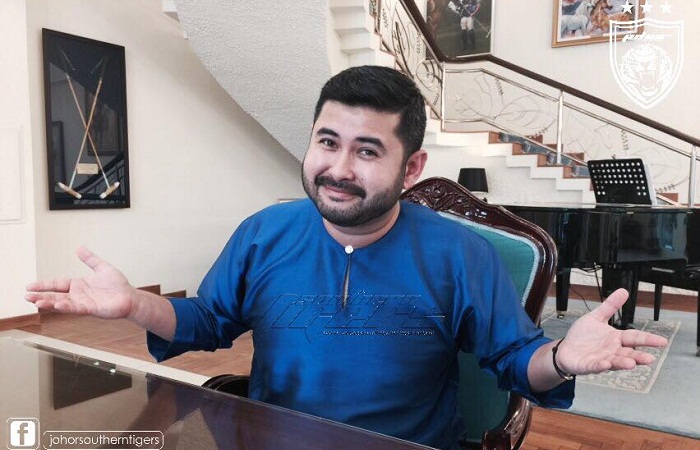
E) Truce
TMJ had been outspoken and critical at various times of the effect of training with the National team on his players; of the Management of the Super League; and of the overall Management of the FAM. In June, there was a truce as the National team were invited to train at Johor’s plush new facilities, and they went on to back-to-back 3-0 wins over Timor Leste in AFC Asian Cup Qualifying matches at a pristine Larkin Stadium. Encouraging form from Hazwan Bakri up front, Brendan Gan in midfield, and the wide play of Azrif Nazrulhaq were highlights, and a new team seemed to be emerging from the debris of retirements. But the sparse attendance and the non-attendance of the TMJ at these games suggested that the truce was surface level only. And so it proved.
F) Difficult Oceania Tour & international retirees
A Tour to Oceania gave Kim Swee the chance to assess his squad ahead of the 2016 Suzuki Cup. Or so he thought. In the end, a win, draw and 2-0 loss against Papua New Guinea would be the least of his problems. When he returned to Malaysia, it was to Johor criticism of the squad’s training methods, and the explosive news of the International retirement of four key JDT players – including the all-important Safiq Rahim. The rocky road to Yangon was set. Malaysia were ranked at 174 in the FIFA World rankings
Phase Six – Debutants thrown into the deep end – July 2016 to October 2016
A) Indonesia 3-0 Malaysia
On returning from Oceania, Indonesia inflicted a humiliating 3-0 drubbing on a new Malaysia team in Solo. Three down in 20 minutes, and Brendan Gan taken off seriously injured, the problems had started to multiply for Ong Kim Swee. More JDT players such as Izham Tarmizi and Azrif would became mystifying absentees from the National squad as the frostiness between JDT and FAM/National team became more and more apparent. Debutants and experimentation were the order of the day as Malaysia dug out draws against Singapore, and Afghanistan. But the 26 that travelled to Myanmar for the Group games described as the best available by the Coach missed eight JDT players who would probably have been close to the starting XI, plus the injured Brendan Gan and Christie Jayaselan.
B) Junior team dismay
If the junior teams were pulling up trees, maybe the discontent could be contained. But whilst all this was going on, Malaysia’s under 16 team were a well-beaten fourth in their attempts to qualify for the AFC under 17 World Cup. And that was the good junior news! The under 19’s didn’t get beyond the ASEAN Group qualification. By comparison, ASEAN rivals Vietnam will be in Korea next year at the FIFA World Cup Finals. Frank Bernhardt’s under 22’s had preparation games for the SEA Gamesthat saw mixed results. A Japan Tour featuring matches against J2 and J1 clubs saw a loss and a draw; there followed a home draw and defeat to Bahrain under 22’s, and two scrappy victories over the senior Brunei team. Matthew Davies, Safawi Rasidi and Adam Nor Azli got chances with the senior team, but only Davies would make the final Suzuki Cup squad.
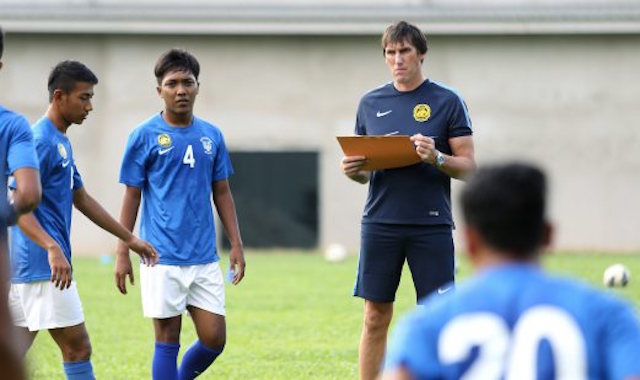
C) Super Johor, Emerging Kedah
Domestically, Johor continued their all conquering League season and would go on to take a third straight title with an unprecedented unbeaten record. But not one Malaysian-born player was in the top 10 Super League goal-scoring charts, and only three Malaysians scored five or more goals in the season. Felda United’s challenge fell away, and only Kedah FA’s youth policy and fine foreigner recruitment added frisson to the end of the season. The Malaysia Cup – despite a fabulous final between Kedah and Selangor – was criticised by the clubs for the dense fixture schedule and for causing a three-week gap between the penultimate and final rounds of the league campaign. And JDT regarded the prestigious trophy as a secondary competition due to it not having an AFC place on offer.
D) Johor’s AFC Cup defeat
In a domestic season dominated by JDT, even they ended in disappointing fashion when beaten 4-2 on aggregate against India’s Bengaluru in the AFC Cup semi Final. And this came after they had focused their energies of the AFC Cup, ahead of the Malaysia Cup. In the end, the suspensions of Jorge Pererya Diaz and Martin Lucero for their second leg in Bangalore were too much to overcome and despite their squad brimming with Malaysian Internationals, they fell short. Clearly, there’s still work to do if Johor are to become an Asian Club force.
E) Kedah thrive – but Olympics push football to the background
Television coverage captured the dramatic introduction of New Zealand International Shane Smeltz to the Super league with his goal at Kelantan a contender for goal of the season. Kedah enjoyed a thrilling run of form in both League and Malaysia Cup, and football fever hit Alor Setar with crowds packing the stands. But the general profile of the League – despite continued high viewership of the televised matches – diminished. The country was captivated by Malaysian success at the Rio Olympic & Paralympic Games. The written press covered the Super League in perfunctory fashion as the season reached its climax, and TV coverage remained limited to two, occasionally three, live games per weekend. Indeed, it got to the stage where there was as much information from legally dubious online portals – which had started doing their own live streaming of matches – as there was from Live Broadcast. Who was protecting the TV rights?
F) Kudos to Kedah – a brilliant Malaysia Cup final
As always, there were moments to remind us exactly why football is such a wonderful sport. The Malaysia Cup Final between Kedah and Selangor was one such occasion: A full house, a dramatic penalty shoot-out, and a huge TV audience. A great occasion with Kedah worthy winners if only for the way they had integrated their young players and Kedah diehards with outstanding foreigners. But even the Malaysia Cup was shrouded with problems. Many teams complained of the fixture congestion that emerged after the League and Malaysia Cup were played simultaneously post Ramadan. It meant that there were eight weeks of continuous midweek, weekend football that stretched the resources of many clubs. And crowds were largely low. A Selangor quarter-final derby between PKNS and Selangor attracted less than 4,000 to each of their matches. The Selangor fans were clearly disaffected.
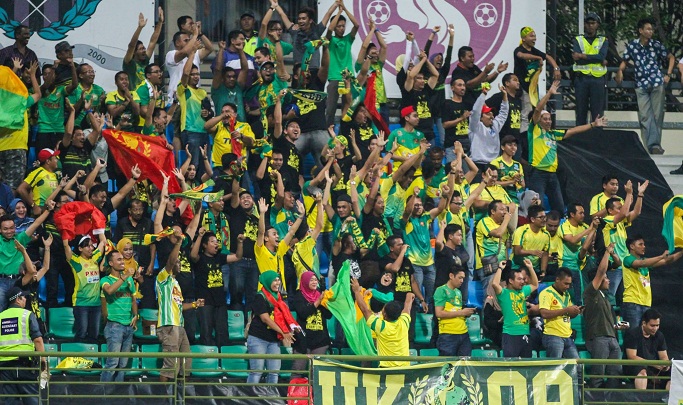
G) Relegation Confusion – and NO-ONE NOTICED?
If the Press HAD been covering domestic football with proper attention, they might have prevented an embarrassing end-of-season issue as Pahang escaped a final day battle of survival from relegation when, from nowhere, an appeal was made against Kedah for fielding an illegible player against them (Pahang) in a match that took place in August – more than two months earlier. Kedah’s own Rizal Ghazali picked up three yellow cards and should have been suspended for the visit of Pahang. And no one – NO ONE – noticed. Kedah should have been more vigilant. But also the Leagues own Press and Statistical department should have raised the red flag ahead of the game. Certainly the FAM and, if not their legal team, the match commissioner should have been aware of which players were ineligible to play in a game. And yes, the press’ lack of proper scrutiny – for whatever reason – of their top league is deserving of critical assessment. Six potential levels of checking, and yet no one saw the problem. No one came out of this episode well. Can you imagine, for example, Tottenham’s England International full-back Kyle Walker receiving three yellows, and nobody from his Club, FA, Press (written or TV), press pack providers etc pointing out that he should be suspended ahead of the next Tottenham game?
H) Credibility strained
And not only that, another archival disciplinary issue against Kedah may well have saved PDRM from relegation, demoted Penang and written JDT’s unique unbeaten season out of the record books. Mystifyingly, PDRM withdrew their complaint and Penang were saved. But this all took place after the season was over and took attention away from what – in normal leagues – would have been a huge relegation scarp on the last day of the season when any two of five teams were playing for their futures.
Phase Seven – The Tipping Point – November 2016
A) Malaysia eliminated at group stage of AFF Suzuki Cup
In Yangon, Myanmar, at the AFF Cup a 3-2 come from behind win over Cambodia was followed by narrow 1-0 defeats to both Vietnam and the hosts – both times the goal coming late in the game. It was a huge embarrassment, but the logical conclusion of the previous two years. If Kim Swee had been able to seduce a semi-final berth out of his team, it would have papered over the weaknesses of the sport’s structure. But he, by his own words and to his immense credit, “failed” and so there’s no way supporters for Malaysian domestic football – like myself – can now deny that the sport’s worries are over-exaggerated.
We can argue whether the squad he took to Yangon was the strongest available to him, and discuss the merits of Darren Lok’s inclusion up front, or if Matthew Davies’ enforced conversion to left back was the right decision. But that would only be addressing the surface wounds, and not the roots of the problem. For Malaysia to become a football Nation who sees playing in the Asian Cup finals as a realistic goal, and regular matches against the likes of Australia (as Thailand did two weeks ago) rather than Papua New Guinea, fingers must be pointed, and blame apportioned, and good remedial action taken. The internecine civil war between Johor Darul Takzim and the Football Association of Malaysia – with Ong Kim Swee’s National team right in the middle of the turf war – may, in the end be seen as a good thing. But only if the correct remedial action is taken.
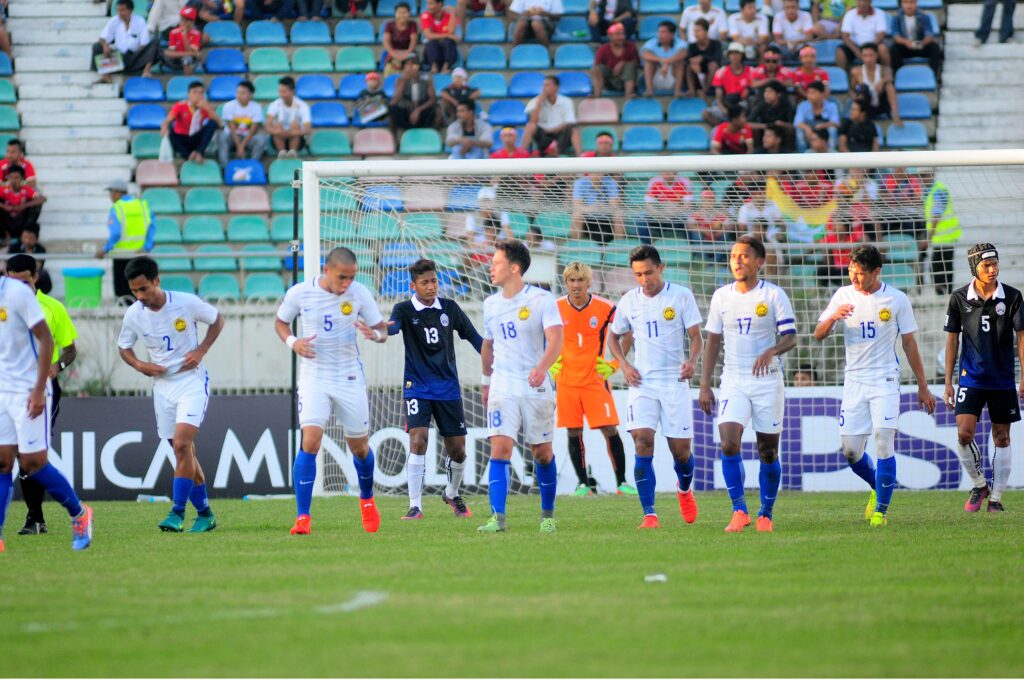
B) Credibility FURTHER strained
And when it can’t possibly get any worse. It can! Post Suzuki Cup, the domestic league faced embarrassing “confusion” when Selangor FA didn’t sanction promoted PKNS Selangor to play in the Super leagues – prompting PKNS to move their flag to the Selangor Malay FA to ensure participation in next year’s Super league. And playing out of Shah Alam Stadium no less, whilst Selangor FA – with increasing political infighting – find their home to be the far less salubrious Selayang Stadium.
C) Teams facing financial issues
And the rumour mill is working overtime with financial woes reported at State teams like Kelantan (who lost their coach, their imported players, and their best locals including Wan Zack Heikel, Wan Zahrulnizam and Brendan Gan), Selangor (who have lost Hazwan Bakri and Nazmi Faiz Mansour to Johor) and, most concerning of all, Felda United who saw Irfan bakti resign as Coach and have been slow in recruiting for the new season which starts in less than 6 weeks. How can so many financial and credibility issues be emerging just two years after the League was “valued” at RM 1.26 billion? What happened to that injection of money? Where did it go wrong?
CONCLUSION
Is it any wonder why the TMJ is so fed up? Is it a surprise that journalists are so jaded? Is it a mystery why sponsors and broadcasters aren’t queuing up for a league that, every time it is on TV, virtually guarantees an audience in excess of 1,000,000 viewers?
To an observer like myself who (I hope) tries to see the positive in football, and will paint as rosy a picture as possible, the conclusion is that a moment has been reached when all the cries from the Malaysia Ultras, the sporting press, the hard-working organisers of football programmes set up because of the lack of structure in the game, and most of all the vocal and sometimes controversial criticism of Tunku Ismail of Johor must finally have an say in changing the game in Malaysia.
If good, drastic change doesn’t occur, then Malaysia’s football rivals will remain East Timor and Macau. And no one wants that!
Other posts by Dez Corkhill

